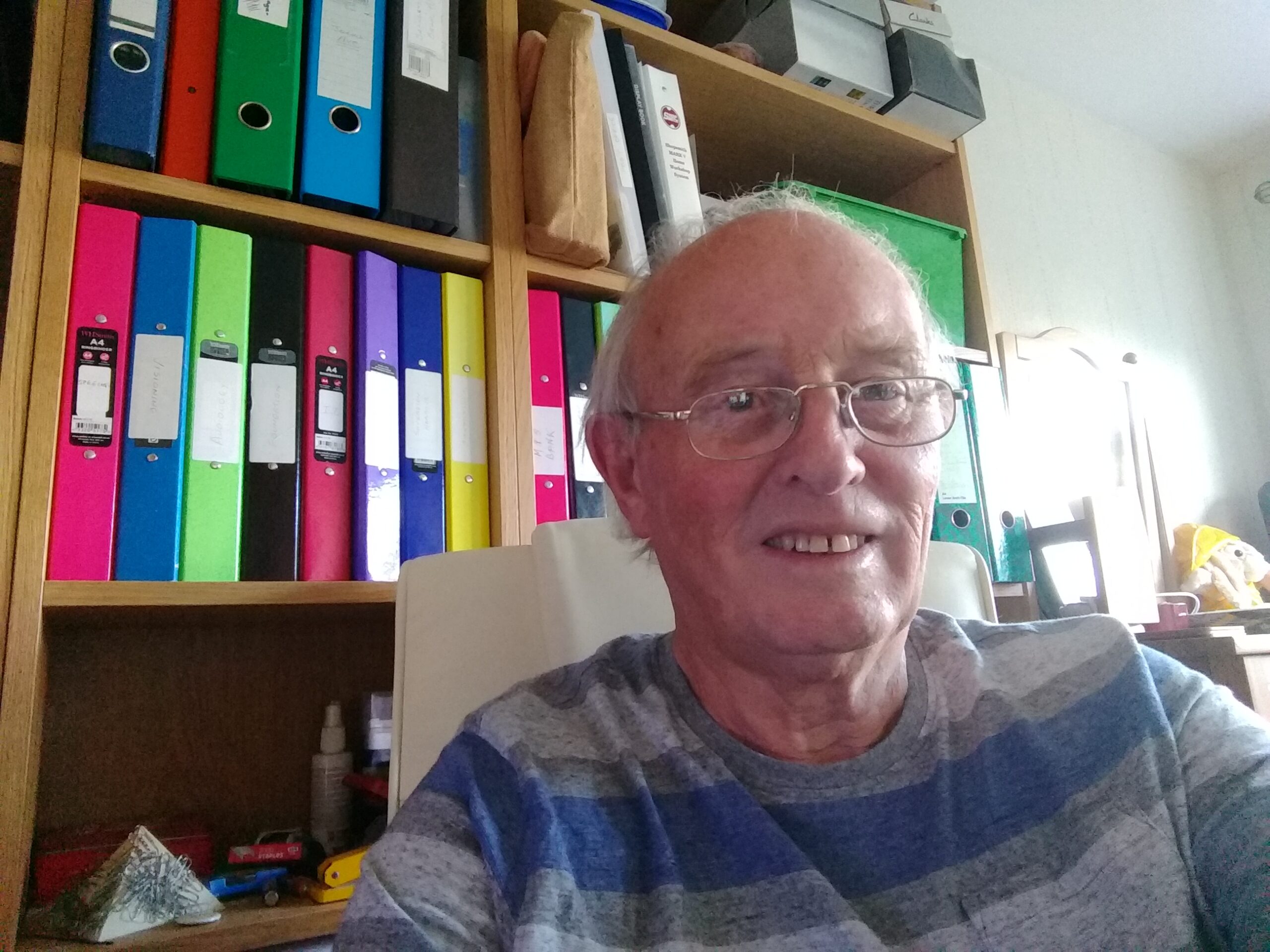
Most members of Rotary make a voluntary donation to Rotary Foundation (hereon called Foundation) – but not many know the details of what actually happens to that money, and how it links with District Grants, Global Grants and the work of Rotary in general. But Foundation is very important as it has the potential to support us Rotarians in our service to others – whether that be local or international. Our Club, for instance, recently received a District Grant – with which we were able to help the Prince of Wales Youth Club in Canterbury carry out some of its Covid-support work for underprivileged local youngsters. So it was good to hear Ray talk about Foundation.
“Rotary Foundation is probably one of the LEAST understood parts of Rotary,” Ray said at the start of his talk “and yet,” he added, “it’s the glue that binds all Rotary Clubs together world wide”. Ray hoped to help us understand more about how it works, reminding us first of Foundation’s motto (“Doing Good in the World”) and of Rotary and Foundation’s long history.
Everything started with Paul Harris, the founder of Rotary. Harris had a hard upbringing and had faced some difficult times in his early life. Later at school he seemed to get into trouble, and had a variety of jobs before graduating and moving to Chicago. It was in 1905 that he set up Rotary – with the first four meeting attendees being friends and work colleagues. The primary goal back then had been business networking, friendship & fellowship. However, Harris decided that he wanted Rotary to have a greater purpose, so in 1907 members carried out Rotary’s first ever public service project, the construction of public toilets in Chicago. And so Rotary took its first step as a service organisation.
In 1917, outgoing President Arch Klumph had the idea for an endowment fund with which to help others. He donated $26.59 – planting the seed of Rotary’s endowment fund, now worth more than $1 billion.
The mission of The Rotary Foundation is “to enable Rotarians to advance world understanding, goodwill, and peace through the improvement of health, the support of education, and the alleviation of poverty.” There are six areas of focus:
- Preventing disease
- Providing clean water
- Supporting education
- Growing local economies
- Saving mothers & children
- Promoting peace
Next year (2021) a 7th area will join the list: supporting the environment. A key aspect of Foundation is that whatever it does needs to be sustainable. In this context, Ray told us about the UN Sustainable Development Goals (reminding us that Rotary was involved in setting up the UN and still has a seat on the body, though not a vote).
Among many causes and programmes of Foundation, key ones include:
- the eradication of polio (a debilitating viral disease that once was widespread around the world; Ray gave a good overview of the current situation and the role of Rotary)
- Grants (District and Global)
- Global Scholars
- Peace Fellowships
Following this introduction to Foundation, Ray went on to talk about Rotary’s funding model. At first glance, the picture he showed us to illustrate this looked mind-bogglingly complex. But Ray explained it nicely – although here we just give an outline.
The donations made by Clubs or individual Rotarians go towards Foundation’s Annual Fund. This money is invested for three years and the investment income fed back into the Annual Fund after some admin costs.
Of the Annual Fund, 50% goes towards a “World Fund” and 50% towards “District Designated Funds”.
Meanwhile, bequests also go into an endowment fund; this supports peace fellows as well as the World Fund. 50% of District Designated Funds goes towards District Grants and 50% to Global Grants (for which clubs can apply for to support specific projects).
Ray highlighted how, by getting matched funding from District, clubs could leverage $5,000 of funds into a $30,000 Global Grant.
Ray assured us that the grant application process, now done online, was a simple one – though it did need some research. He encouraged clubs like ours to apply for relevant grants.
Finally, before he ended his talk Ray reminded us how our Members and clubs can contribute to Foundation’s funds, namely through:
- Personal donations
- Part of our subscription
- Specific fundraising
- A % of fundraising
- Sustaining Members (who could support Foundation for less than the price of a cup of coffee a week!)
- Benefactors/Bequests
- and donations to RFUK (to which Gift Aid is added)
It was good to hear the various ways that our Members can support Foundation and how, in turn, Foundation could help support projects we wish to support. In fact, our Club is already working with an overseas Club that is trying to secure a Global Grant. If that is successful, we will undoubtedly tell you about it here!


